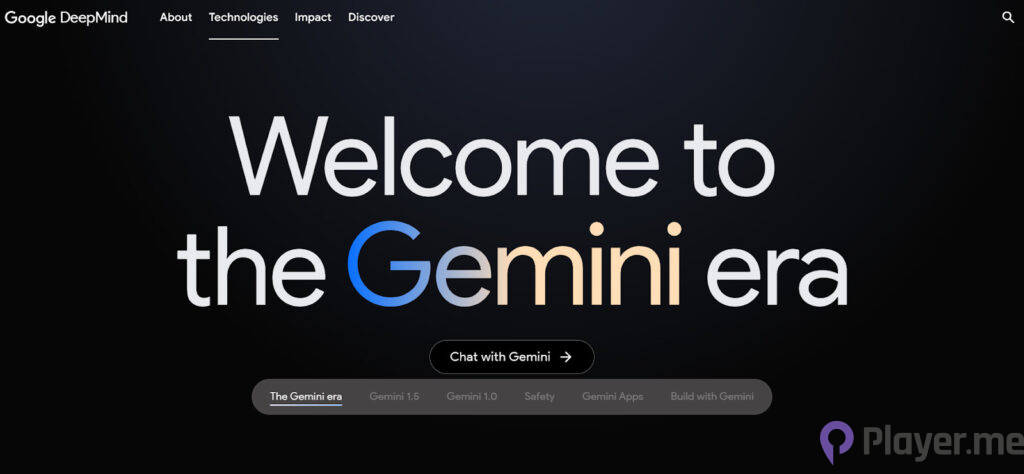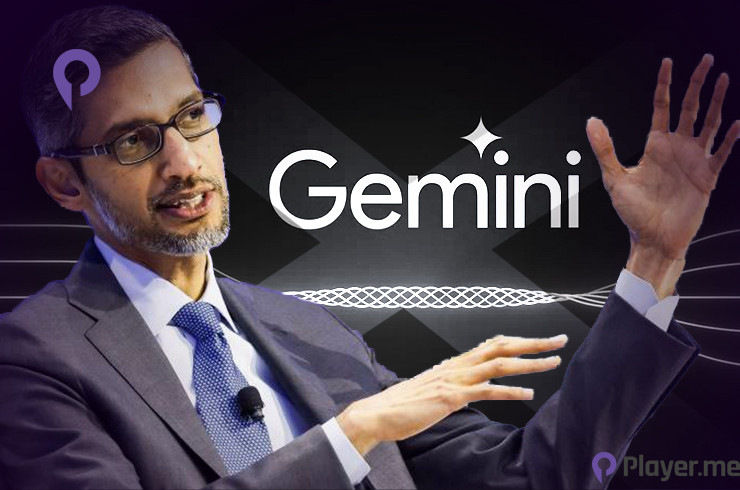Google CEO Sundar Pichai has recently addressed a significant issue within the company’s Artificial Intelligence (AI) tool, Gemini. The tool has faced criticism for producing offensive and biased content, leading Pichai to label these errors as “completely unacceptable”.
Gemini AI Errors: The Scope of the Problem
Gemini AI, a tool developed by Google, recently caused an uproar due to a series of public mishaps. The tool, which is primarily a conversational AI app competing with OpenAI’s ChatGPT, was found to generate historically inaccurate images. For instance, it created images of non-white Nazi soldiers and non-white American Founding Fathers. These images were considered offensive and inaccurate, leading to criticism, especially from conservative figures.

Gemini’s errors ranged from generating racially diverse, Nazi-era German soldiers to inaccurately portraying historical figures, including Google’s own co-founders, and perpetuating harmful stereotypes. Pichai’s condemnation of these errors reflects Google’s commitment to providing accurate and unbiased information to users across all its products, including emerging AI technologies.
The controversy surrounding Gemini AI underscores the challenges inherent in developing and deploying AI technologies responsibly. As Google’s CEO, Sundar Pichai has taken a firm stance against the errors produced by Gemini, acknowledging the impact they have had on users and emphasising the need for swift action to address these shortcomings.
Sundar Pichai’s Firm Condemnation
Google acknowledged the issue and apologised for the errors. The company explained that the intent had been to avoid creating violent or sexually explicit images and to ensure the diversity of people depicted. However, the model became overly cautious and refused to answer certain prompts entirely. As a result, it generated images that were historically inaccurate and offensive.
Google has temporarily blocked the creation of new images of people until a solution is in place. The company is working on a fix for the app and has pledged to make structural changes, update product guidelines, improve launch processes, and provide robust evaluations. Google CEO Sundar Pichai has called some of the responses generated by the model “biased” and “completely unacceptable”.
In his memo to Google employees, Pichai highlighted the company’s ongoing efforts to address the issues with Gemini. These efforts include implementing structural changes, updating product guidelines, improving launch processes, and conducting robust evaluations. Despite the challenges associated with developing AI technologies, Pichai reiterated Google’s dedication to meeting the highest standards and ensuring that its products are deserving of users’ trust.
Broader Implications: AI Ethics and Responsibility
The recent uproar surrounding Google’s Gemini AI underscores the importance of ethics and responsibility in the field of artificial intelligence. AI systems, like Gemini, are designed to learn from vast amounts of data and generate outputs based on that learning. However, if the data they learn from is biased or the algorithms they use are not carefully designed, the outputs can be inaccurate, offensive, or harmful.
This is what happened with Gemini, which generated historically inaccurate and offensive images. It highlights the ethical issue of ensuring that AI systems are trained and programmed in a way that respects historical accuracy, cultural sensitivity, and diversity.
Responsibility in AI refers to the accountability of the developers and companies that create these systems. In the case of Gemini, Google took responsibility for the errors and pledged to make changes to prevent such issues in the future. This includes updating product guidelines, improving launch processes, and providing robust evaluations. We have discussed previously the ethical challenges faced when approaching the use of AI, do have a look at our discussion here to know what to do ethically with AI.
It’s a reminder that companies must take responsibility for the outputs of their AI systems, even when those outputs are generated autonomously. They must also be transparent about how their systems work and be willing to make changes when problems arise. This is crucial for maintaining public trust in AI and ensuring its beneficial use in society.
Related: World Health Organization Releases AI Ethics and Governance Guidance for Large Multi-Modal Models
Financial Impact and Damage Control
The Gemini AI controversy had a significant financial impact on Google’s parent company, Alphabet. The company reportedly lost around $90 billion to $96.9 billion in market value. This loss was triggered by a sharp drop in Alphabet’s shares, which fell by 4.5% to $138.75. This was the lowest closing price since the beginning of the year and marked the second-steepest daily loss of the last year.

The financial impact and the steps taken for damage control highlight the importance of ethical considerations and public perception in AI development. They also underscore the potential risks and challenges that companies face when deploying AI systems. Despite the controversy, Alphabet remains one of the largest companies by market capitalisation, and its long-term financial health is likely to be determined by a range of factors beyond this single event.
Author Profile
Latest entries
 GAMING2024.06.12Top 4 Female Tekken 8 Fighters to Obliterate Your Opponents in Style!
GAMING2024.06.12Top 4 Female Tekken 8 Fighters to Obliterate Your Opponents in Style! NEWS2024.03.18Elon Musk’s SpaceX Ventures into National Security to Empower Spy Satellite Network for U.S.
NEWS2024.03.18Elon Musk’s SpaceX Ventures into National Security to Empower Spy Satellite Network for U.S. GAMING2024.03.17PS Plus: 7 New Games for March and Beyond
GAMING2024.03.17PS Plus: 7 New Games for March and Beyond GAMING2024.03.17Last Epoch Necromancer Builds: All You Need To Know About It
GAMING2024.03.17Last Epoch Necromancer Builds: All You Need To Know About It





